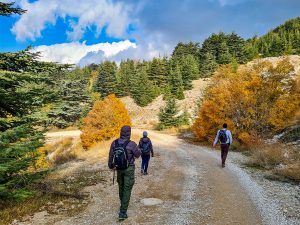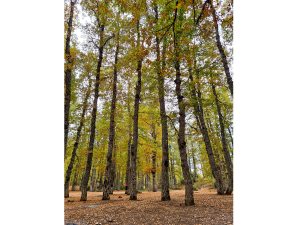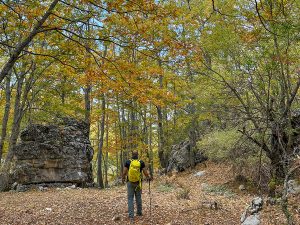
Autumn the best season of all, 14 fun facts!!
- September 7, 2023
- 0
In 2024, the autumnal equinox—also called the September equinox or fall equinox—arrives on Sunday, September 22. This date marks the beginning of fall in the Northern Hemisphere.
WHAT IS AN EQUINOX?
The word “equinox” comes from Latin aequus, meaning “equal,” and nox, “night.” On the equinox, day and night are roughly equal in length.
During the equinox, the Sun crosses what we call the “celestial equator”—an imaginary extension of Earth’s equator line into space. The equinox occurs precisely when the Sun’s center passes through this line. When the Sun crosses the equator from north to south, this marks the autumnal equinox; when it crosses from south to north, this marks the vernal equinox.
FALL WEATHER
It is the summer’s great last heat,
It is the fall’s first chill: They meet.
–Sarah Morgan Bryan Piatt
SIGNS OF AUTUMN
What are your local signs of fall? In many regions of the Northern Hemisphere, the landscape silently explodes with vibrant colors of red, yellow, and orange. The leaves begin to drop off the trees, providing endless hours of jumping into leaf piles for kids and raking them back up for parents!
Also notice the arc of the Sun across the sky each day as it starts shifting south. Birds and butterflies migrate along with the path of our Sun!

Autumn fun Facts:
1. Autumn begins
There are two different dates when autumn could be said to begin. Autumn, as defined by the Earth’s orbit around the Sun, begins on the equinox which falls on 22 or 23 September.
However, to record climate data, it is important to have set dates that can be compared, so meteorological autumn always begins on 1 September.
2. Trees prepare for winter
One of the most stunning signs of autumn is the turning of the leaves. The shorter days are a sign to trees to begin to prepare for winter.
During winter there is not enough light for photosynthesis to occur, so as the days shorten throughout autumn, the trees begin to close down their food production systems and reduce the amount of chlorophyll in their leaves.
3. The chemistry of colour
Chlorophyll is the chemical which makes tree leaves green and as it declines other chemicals become more prominent in the leaves.
These are responsible for the vibrant ambers, reds and yellows of autumn. The chemicals responsible are types of flavonoids, carotenoids and anthocyanins.
Did you know some of these chemicals are the same ones that give carrots (beta-carotenes) and egg yolks (luteins) their colours?

4. People born in Autumn live longer
A study in the Journal of Aging Research found that babies born during the autumn months are more likely to live to 100 than those born during the rest of the year.
Their study found that 30 % of US centenarians born during 1880-1895 were born in the autumn months.
5. The days get shorter
The word equinox comes from the Latin equi (meaning equal) and nox (meaning night) accounting for the equinox marking the time when day and night are of equal length.
We often notice the nights begin to draw in from this point as after the autumn equinox, the nights are longer than the days, until this is reversed at the spring equinox.
6. A date for your diary – 24 September 2303
Generally speaking, the autumn equinox always falls on either 22 or 23 September, but not quite always.
Because the Gregorian calendar is not quite in perfect symmetry with the Earth’s orbit, the autumn equinox will very occasionally fall on September 24. This last happened in 1931 and will next happen in 2303.
7. Persephone’s return
In Greek mythology, autumn began when Persephone was abducted by Hades to be the Queen of the Underworld. In distress Persephone’s mother, Demeter (the goddess of the harvest), caused all the crops on Earth to die until her daughter was allowed to return, marking spring.
8. Autumn and Fall
We typically think of ‘fall’ as the North American version of the word ‘autumn’, but it was in fact in widespread usage in England until relatively recently.
Originally a shortening of the phrase fall of the leaf, the phrase was common in England in the 17th century. The word autumn entered English from the French automne and didn’t become common usage until the 18th century.

9. It’s a great time for a campfire.
While some love camping in the summer, the fall, when leaves are changing color and the air is a bit crisper, is arguably the best time to get out in nature, kick up your heels, and keep warm by the light of the campfire
10. More relationships bloom in the fall.
If you’re not already in a relationship, then you might want to look for a significant other during autumn, which is otherwise known as cuffing season. Vogue explains that “cuffing season is actually the period of time between fall and the dead of winter when people start searching for someone with whom they can spend the those long, frigid months.”
And, according to dating apps, it’s totally real! The data experts at Thinknum Media analyzed numbers from Tinder, Match, OkCupid, and Meetic and found that each year, there’s a “notable jump in active users.
11. The smell of the first rain of the season has a name.
The smell of the first rain in the fall is one of the most satisfying scents in the world. It’s so special, in fact, there’s a specific word for it. According to Merriam-Webster, petrichor is “a distinctive, earthy, usually pleasant odor that is associated with rainfall especially when following a warm, dry period and that arises from a combination of volatile plant oils and geosmin released from the soil into the air and by ozone carried by downdrafts.” Now you know!
12. The word fall is literally derived from the phrase “the fall of the leaves.”
As Merriam Webster also notes, the words fall and autumn can be “used interchangeably” when talking about the time “between summer and winter,” although “autumn is considered the more formal name.” In addition, the expert wordsmiths explain that while both words originated in Britain, fall—which comes from the phrase “the fall of the leaves”—is used more frequently in American English.

13. And there’s a word for the sound of rustling leaves, too.
The sound of leaves and trees rustling in the wind is one of the most satisfying noises of the season. And the next time you hear it, you’ll know it has a name: psithurism, which comes from the Greek word psithuros, meaning whispering (the s is silent).
14. Catching a falling leaf can bring you good luck.
All those falling leaves don’t just look beautiful, they may also bring you good luck. That is, if you’re a superstitious person. According to The Encyclopedia of Superstitions, there’s a popular belief that “as many falling leaves as can be caught in the hand in autumn, so many happy months will follow.”











